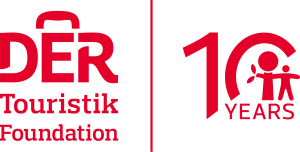Family Planning
among the Maasai
Tanzania
Family planning in a patriarchal society
The power of songs
The East African ethnic group of the Maasai inhabits the vast plains in the south of Kenya and in the north of Tanzania. This ethnic group also predominates in the Simanjiro District in Tanzania, where DER Touristik Foundation is active together with its cooperation partner ECLAT Foundation. The Maasai are mainly known as warriors and herders and engage in semi-nomadic cattle breeding. Polygamy prevails in this male-dominated society. Circumcision ceremonies are part of
everyday life and a man’s prestige is measured by the number of his cattle and wives. Traditions have a high value. A circumcised boy or a new mother is given blood from the neck of a young bull – mixed with milk – to drink.
For a western society, this patriarchy with its customs seems strange and backward. It stands to reason that topics like family planning and contraception are not discussed in the partnerships.
According to Maasai tradition, the men do not take care of the upbringing of the children. Maasai women often take care of 10 or more children, whom they can hardly feed adequately. But society in East Africa is changing. The need to raise children increasingly includes having health problems treated in hospitals and the desire for a better life for themselves and their children.
As part of this development, more and more women are using family planning services. However, this mainly happens in secret.
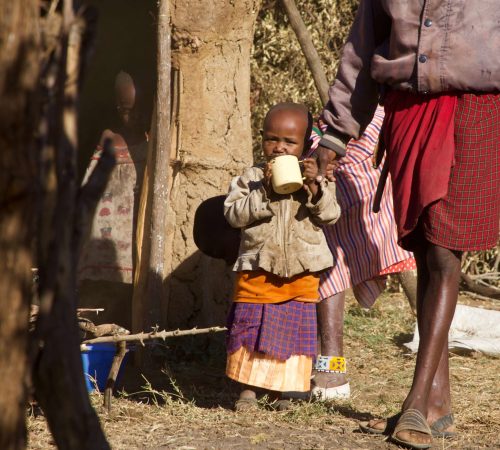
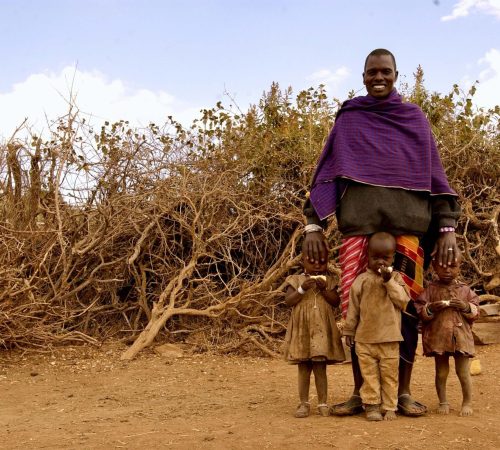
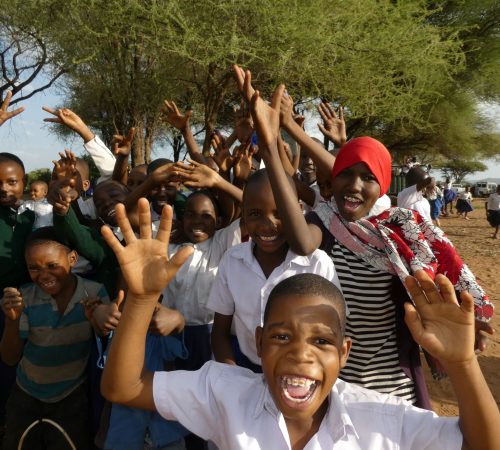



For a western society, this patriarchy with its customs seems strange and backward. It stands to reason that topics like family planning and contraception are not discussed in the partnerships.
According to Maasai tradition, the men do not take care of the upbringing of the children. Maasai women often take care of 10 or more children, whom they can hardly feed adequately. But society in East Africa is changing. The need to raise children increasingly includes having health problems treated in hospitals and the desire for a better life for themselves and their children.
As part of this development, more and more women are using family planning services. However, this mainly happens in secret.
Music is a universal language - also for sensitive messages
For the joint project of DER Touristik Foundation and ECLAT, about 3,000 men are to be educated on the issue of family planning in 20 selected villages. Reducing their scepticism of family planning services is a must.
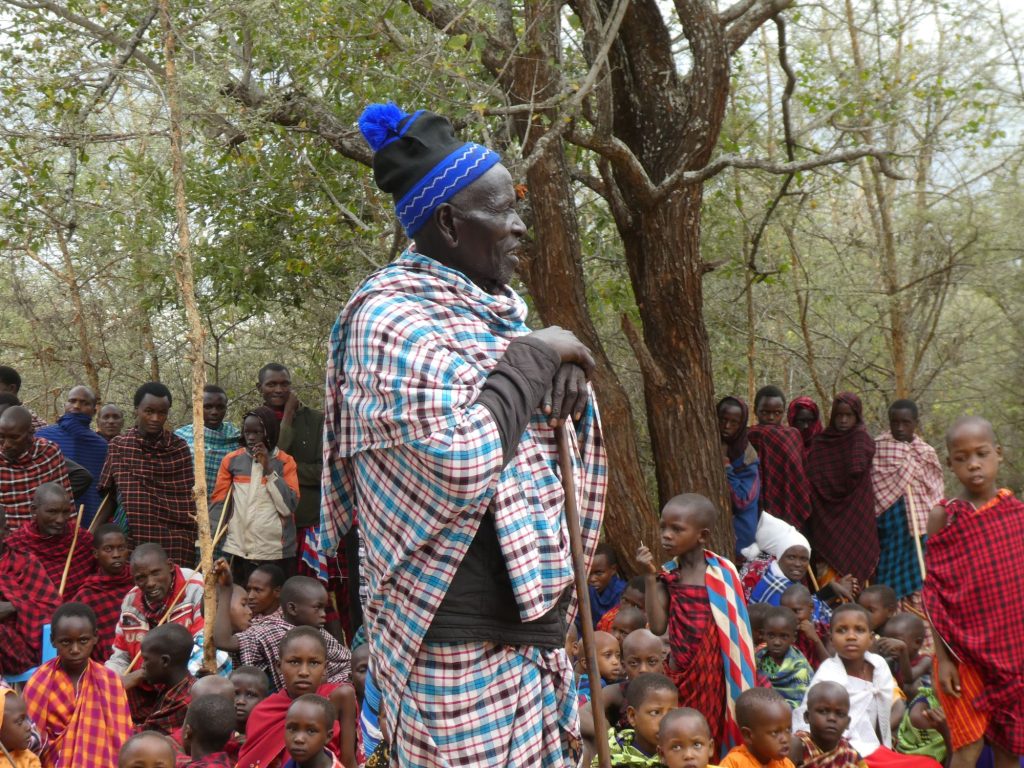
To this end, the project partners are making use of another Maasai tradition: The people in Tanzania love to sing. Important religious, political and cultural messages are conveyed through songs, and so the topic of family planning is also carried into the communities with the help of a choir.
Music is an accepted traditional way of gently delivering sensitive messages to the community and here especially to the target group of men. The tribal leaders and community leaders selected by ECLAT are held in high esteem in their communities and are prepared for this task with great sensitivity.
In addition to community leaders, a women’s center, and facilities such as pharmacies also support the project. Health workers are playing an increasingly important role in Maasai society.
They can help disseminate information, dispel misconceptions about family planning and encourage Maasai women to advocate for a healthy life worth living in a male-dominated society.

To this end, the project partners are making use of another Maasai tradition: The people in Tanzania love to sing. Important religious, political and cultural messages are conveyed through songs, and so the topic of family planning is also carried into the communities with the help of a choir.
Music is an accepted traditional way of gently delivering sensitive messages to the community and here especially to the target group of men. The tribal leaders and community leaders selected by ECLAT are held in high esteem in their communities and are prepared for this task with great sensitivity.
In addition to community leaders, a women’s center, and facilities such as pharmacies also support the project. Health workers are playing an increasingly important role in Maasai society.
They can help disseminate information, dispel misconceptions about family planning and encourage Maasai women to advocate for a healthy life worth living in a male-dominated society.
Pilot project 2022: First successes are visible
The decision to expand the project to 20 villages in 2023 is based on the positive experiences from the previous year. Already in 2022, the project partner ECLAT conducted a pilot project in 10 villages of Simanjiro District. A choir of women and men sang songs about the importance of family planning at community meetings.
The results are hopeful: almost 1,400 women have moved to contraceptive methods as a result.
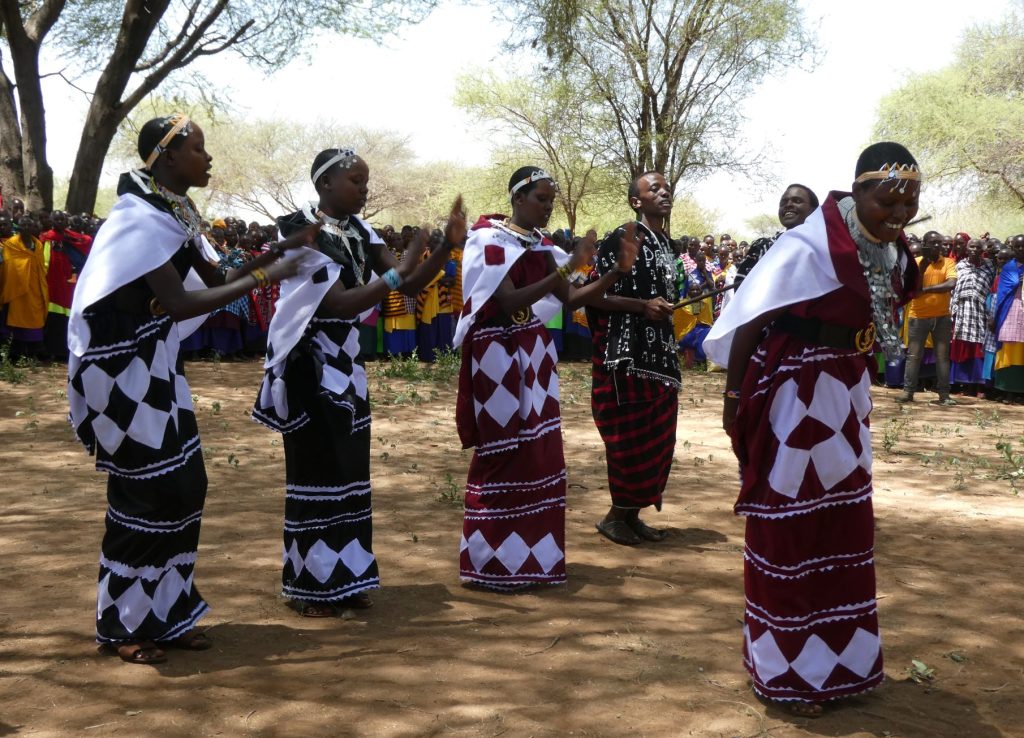
Pilot project 2022: First successes visible

The decision to expand the project to 20 villages in 2023 is based on the positive experiences from the previous year. Already in 2022, the project partner ECLAT conducted a pilot project in 10 villages of Simanjiro District. A choir of women and men sang songs about the importance of family planning at community meetings.
The results are hopeful: almost 1,400 women have moved to contraceptive methods as a result.
Our cooperation partner:
ECLAT Foundation
Since its foundation in 2008, the ECLAT Foundation has been working as a non-profit, non-governmental organisation to improve life in poor communities in Tanzania. Its focus is on the Simanjiro district in the Manyara region in north-eastern Tanzania. More recently, however, ECLAT has been expanding its reach to other parts of the country to reach more people in need. Its activities range from providing people with clean water to building educational institutions and empowering women economically.
